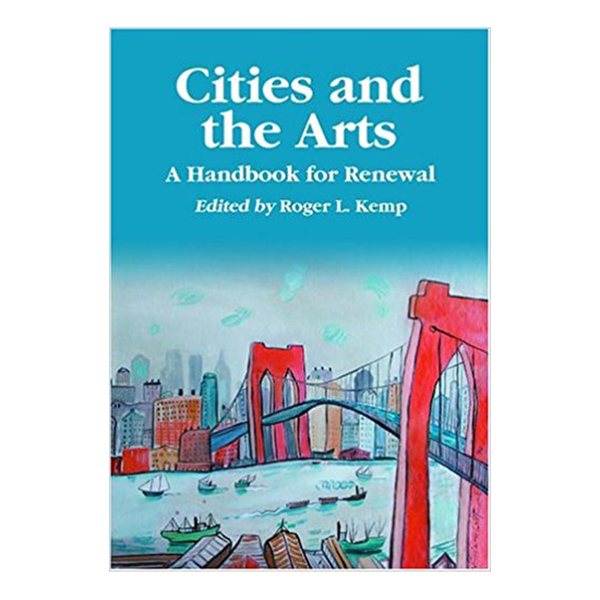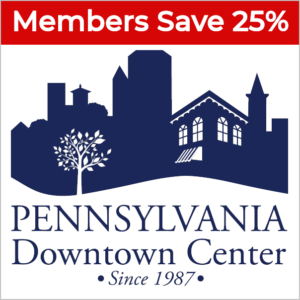Description
Cities are increasingly using the arts to improve their downtowns and enhance economic conditions.
In Cities and the Arts, editor Roger Kemp has gathered articles from a wide range of sources to demonstrate that when community investment focuses on the arts, business, commerce, and tourism will follow.
The centerpiece of the book is the section on best practices. Here, readers will find 35 case studies on how cities and towns are using the arts to stimulate downtown and neighborhood revitalization. These arts-based economic development strategies are working in politically, economically, racially, and culturally diverse communities throughout America.
Examples include: Developing a master plan for the arts, Creating an arts district, Working with museums to promote cultural tourism, Building artists’ lofts to spur downtown revitalization, Developing urban cultural parks, Using public art to shape the streetscape, and more.
The cities covered range from populations of just over 11,000 in Madison, IN, to over three million in Los Angeles. But the majority are midsized cities demonstrating successful practices for revitalizing downtowns with the arts.
Table of Contents
- Part I: Cities and the Arts
- Cultural Resources as Economic Development Tools
- How the Arts Drive Downtown Revitalization
- Putting the Arts to Work for Main Street Renewal
- Using the Arts for Community Economic Development
- Making the Most of the Arts and Culture with a Plan
- Part II: The Best Practices
- Atlanta, Other Cities, Promote Their Culture to Attract Tourists
- Baton Rouge Develops a Master Plan for the Arts
- Berkeley Creates an Arts District to Revive Its Downtown
- Boston Uses Historic Preservation for Inner-City Renewal
- Charleston Builds a New Public Library to Stimulate Community Revitalization
- Chattanooga, Other Cities, Use the Arts and Culture to Restore Aging Riverfront Areas
- Chicago, Other Cities, Use Museums to Promote Cultural Tourism in Their Downtowns
- Cincinnati, Other Cities, Use Historic Preservation to Transform Train Stations into Cultural Attractions
- Denver Region Citizens Adopt a Special Tax to Finance Arts and Cultural Organizations
- Fort Worth Approves an Entertainment District for Downtown Renewal
- Hartford Develops an Historic Riverfront to Stimulate Inner-City Tourism
- Houston’s Master Plan for Public Art Facilitates Downtown Renewal
- Houston Uses the Performing Arts and Sports to Reinvigorate Its Downtown
- Little Rock Focuses on Cultural Assets and Historic Preservation to Restore Its Aging River District
- Los Angeles, Other Cities, Build Branch Libraries to Stimulate Neighborhood Revitalization
- Louisville, Other Cities, Try Multi-Use Sports Stadiums to Spur Inner-City Renewal
- Lowell, Other Cities, Develop Urban Cultural Parks to Preserve Their Heritage and Lure Tourists
- Madison Restores Main Street to Preserve Its History and Architecture
- Memphis Approves a Museum and Music Academy to Preserve Its Culture, Arts, and History
- Minneapolis Stresses the Arts and Culture as Catalysts for Economic Development
- Nashville Develops a Master Plan for Entertainment to Drive the Arts and Culture
- Newark’s Performing Arts Center Creates a Rebirth of Downtown
- New Bedford Preserves Its Historical Waterfront District and Architecture to Promote Tourism
- New England Cities Use the Arts, Culture, and Entertainment to Spur Community Growth
- New York Builds New Theatres to Revive an Aging Entertainment District
- Orlando and Lakeland Put Public Art in Civic Places to Shape Their Landscape
- Peekskill, Providence, and Phoenix Build Artists’ Lofts to Spur Downtown Revitalization
- Philadelphia, Other Cities, Create Arts and Cultural Districts to Revive Their Downtowns
- Reno, Other Cities, Develop Arts Facilities to Stimulate Their Downtown Economy
- San Francisco Capitalizes on Culture to Renovate Its Neighborhoods
- Seattle’s Arts and Entertainment Facilities Draw Other Developments
- Silver Spring Focuses on Arts, Culture, and Historical Preservation
- South Boston Approves Artists’ Lofts to Improve the Neighborhood
- Washington, D.C., Embraces Culture and Entertainment for Its Downtown Renaissance
- West Palm Beach Focuses on the Performing Arts and Entertainment to Spur Downtown Development
- Part III: The Future
- The Arts Are Here to Stay
- The Arts in the 21st Century
- Nonprofit Organizations and the Arts
- The Creative Class and Cities
- Cities and the Arts
- Part IV: Resources
- Cities with Arts, Cultural, or Entertainment Districts in the United States
- Regional Resource Directory
- National Resource Directory
- National Directory of State Arts Agencies
- National Directory of Regional Arts Organizations
- Bibliography
About the Author
Roger L. Kemp, PhD, ICMA-CM, is Distinguished Adjunct Professor at the Edward S. Ageno School of Business of Golden Gate University and a career city manager for 25 years in California, New Jersey, and Connecticut.
His other books include, Main Street Renewal and Small Town Economic Development.



